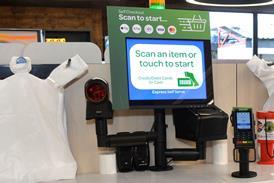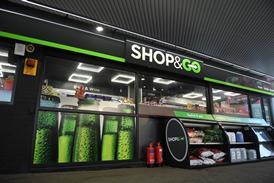
Forecourt Trader’s crime and security webinar brought together representatives of three family retailers and the sector’s main trade body to discuss the extent of and what can be done to tackle one of the biggest challenges for the industry. There were five common themes to emerge.
The 30-minute session – part of a larger webinar event hosted with sister publications The Grocer and Convenience Store – saw Gordon Balmer from the Petrol Retailers’ Association, Parkfoot’s David Charman, Tom Buckley of Pricewatch, and Johnny Srikrishna of SJS Group discuss issues ranging from the cost of crime and staff safety to anti-theft technology and police response (or lack of it).
These are the five major themes that we heard:
Forecourt crime is a growing problem
Forecourt crime costs the nation’s 8,300 forecourts a total of £50 million a year, but that is just based on reported incidents. The true figure is likely to be twice that, said Balmer, and “going in the wrong direction”. Tom reckons thieves steal around £250,000 annually from his employer’s 10-site business. He has taken matters into his own hands by employing a security guard, and asking motorbike riders to dismount and remove their helmets before they are allowed to fill up with fuel.
Do not expect much support from police
Depressingly, the police are often under-resourced or disinclined to respond to reports of crime was the consensus of all three retailers on the panel. Tom recalled calling the police 20 times about one repeat offender, while police advice to him following an incident when thieves broke into a storage container and stole goods was to store stock inside the main building in future. This was despite the business having CCTV footage of both a vehicle’s number plate and the offenders’ faces. There are exceptions. Johnny said that while police attitudes vary across different areas where he has sites, Wiltshire constabulary, for instance, is “really on it”. However, the feeling was that most of the time the police are dismissive. Johnny’s Hastings site has been repeatedly targeted by burglars seeking tobacco, but “they never get caught”. Tom’s conclusion: shoplifting has been largely decriminalised. All our panelists felt just being listened to and taken seriously by police would go a long way.
Aside from the bottom line, crime has a devastating effect on staff
Regardless of the financial impact, employees suffer most when it comes to forecourt theft. “They hate it,” suggested David, who has had to deal with the aftermath of an armed robbery. Solo staff members at a site often feel most vulnerable, although often at smaller sites it is uneconomical to employ two staff members on a shift. Tom said that employing a part-time security guard broke the cycle of repeat offenders, but is unaffordable long-term.
Our panelists all direct their workers to approach those acting suspiciously but not challenge directly those intent on stealing. “They might have a syringe or weapon,” said Johnny. “It’s not worth it for a pack of sweets.”
Criminals are getting more strategic
While the cost of living crisis is a factor, retail theft is no longer about shoplifting something for tea, according to David. Criminals are often stealing higher-value items to order to fund drug or alcohol addictions, and gangs can be involved. Offenders are also wise to the limitations of the law, knowing for example that failure to have the means to pay for fuel is a civil rather than criminal offence, for which expensive and time-consuming litigation is the only course of action.
Technology can help, but it has its limits
Number plate recognition systems, CCTV, and pre-pay pumps are all deterrents and have helped, but are far from panaceas was the conclusion of the panelists. Emerging technology such as facial recognition cameras, which David is considering installing in-store, is in its infancy and expensive, and still requires staff intervention and a police response.
Catch up with the webinar for free and watch on demand at https://onlinexperiences.com/Launch/Event/ShowKey=254576
















